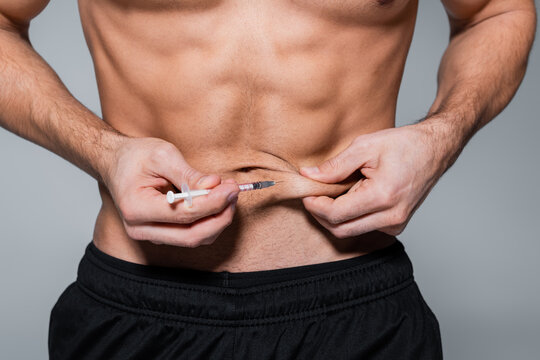Testosterone Replacement Therapy (TRT) is a medical treatment often prescribed to address testosterone deficiency. In Abu Dhabi, where wellness and preventative care are highly emphasized, trt abu dhabi has become more accessible for men experiencing symptoms like fatigue, low libido, muscle loss, or mood disturbances due to low testosterone levels. While TRT offers significant benefits, it is crucial to fully understand the potential risks and side effects before committing to this form of hormone therapy.
What Is TRT and Why Is It Used?
TRT is a clinical intervention designed to restore testosterone levels in men with hypogonadism or other conditions leading to testosterone deficiency. The hormone may be administered through injections, gels, patches, or pellets.
In medical settings across Abu Dhabi, TRT is provided after thorough evaluations and blood tests. Patients considering this therapy are guided through diagnostic protocols to ensure they truly need hormonal support and that it is safe for their individual health profile.
Common Short-Term Side Effects
While many men respond well to TRT, some may experience side effects as their bodies adjust to hormone changes. These side effects are often temporary and may vary based on the method of administration and individual sensitivity.
Acne and Oily Skin
An increase in testosterone levels can stimulate the sebaceous glands, leading to breakouts, especially in individuals prone to acne.
Fluid Retention
Some individuals may experience mild swelling due to water retention, particularly in the ankles or feet. This can usually be managed through monitoring and lifestyle adjustments.
Breast Tenderness or Enlargement
Known as gynecomastia, breast tenderness or swelling can occasionally occur due to a hormonal imbalance between testosterone and estrogen.
Mood Changes
Hormonal shifts can affect mood, potentially leading to irritability, heightened aggression, or emotional sensitivity during the initial phase of therapy.
Long-Term Health Considerations
TRT also comes with potential long-term health implications. These should be reviewed in-depth with a medical provider before beginning therapy.
Cardiovascular Concerns
There has been ongoing debate regarding TRT’s effect on heart health. Some studies suggest a potential increase in cardiovascular risks, such as elevated blood pressure or a higher chance of blood clots. Individuals with pre-existing heart conditions must be closely monitored if prescribed TRT.
Sleep Apnea
Testosterone therapy may worsen pre-existing sleep apnea or contribute to its onset in some individuals. If untreated, sleep apnea can impact cardiovascular health and quality of life.
Elevated Red Blood Cell Count
TRT can increase hematocrit levels, leading to thickened blood. This condition, known as polycythemia, may raise the risk of clotting events and must be tracked through routine lab work.
Testicular Atrophy and Fertility Decline
The body’s natural testosterone production can decline with prolonged TRT use. This may lead to shrinking of the testicles and a reduction in sperm production, potentially affecting fertility.
Psychological and Emotional Impact
TRT can influence emotional well-being in various ways. Some men report enhanced confidence and better mood regulation, while others may feel more anxious or irritable. Hormonal balance is tightly linked to emotional stability, and individuals may require ongoing psychological assessment during therapy.
Monitoring Is Essential
One of the most important aspects of TRT is consistent monitoring. This includes regular blood tests to assess testosterone levels, red blood cell count, liver function, and lipid profiles. Monitoring ensures that dosages are adjusted appropriately and that any adverse trends are addressed early.
Routine evaluations also allow clinicians to detect any emerging issues before they become serious complications. Individuals receiving TRT in Abu Dhabi are typically placed on structured follow-up schedules to maintain safety and treatment effectiveness.
Age and TRT Risks
Age plays a significant role in how the body responds to testosterone therapy. Older adults may face increased risks, especially if they have underlying medical conditions such as high cholesterol, high blood pressure, or diabetes.
In younger men, TRT may suppress the body’s natural testosterone production, creating a dependency on external hormones. It’s important to weigh these risks carefully and explore alternative methods to boost testosterone when appropriate.
Prostate Health Considerations
TRT does not cause prostate cancer, but it may stimulate growth in existing prostate tissues. Men undergoing treatment are often advised to undergo prostate screenings regularly, especially if they are over the age of 40.
Monitoring prostate-specific antigen (PSA) levels helps assess prostate health and detect any abnormalities early. This is a standard part of responsible TRT management.
Lifestyle and Individual Risk Factors
Each person’s lifestyle can impact how well TRT works and what side effects may occur. Smoking, poor diet, sedentary behavior, or excessive alcohol use may worsen the risk of complications during therapy.
Men are encouraged to adopt healthy habits to support the therapy process and minimize the likelihood of side effects. This includes regular exercise, a nutritious diet, adequate hydration, and stress management practices.
Managing and Minimizing Risks
Proper medical supervision is the most effective way to manage risks associated with TRT. Personalized plans, careful dose management, and regular screenings all contribute to a safer treatment journey.




